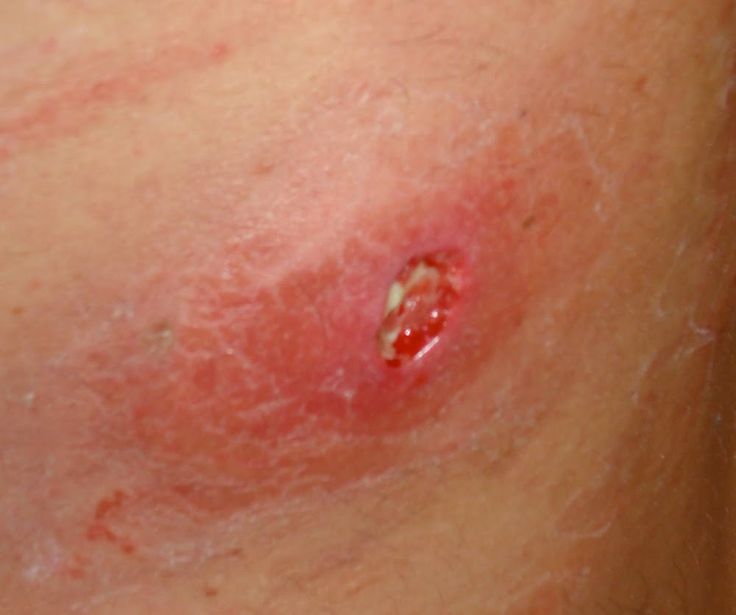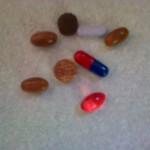
Dr Martin Duerden
When faced with a cold or sore throat are we too ready to reach for
antibiotics as a prefered treatment? What are the alternatives? How effective are they?
PatientTalk.Org interviewed Dr Martin Duerden , a UK based primary care physician, university lecturer, and Clinical Advisor in prescribing for the UK Royal College of General Practitioners.
PATIENTTALK.ORG- It is estimated that 1.6 million unnecessarily antibiotic prescriptions are issued each year in the UK. This survey of pharmacy staff sees the vast majority say there needs to be improved awareness of unnecessarily antibiotic use especially in upper respiratory tract infections such as sore throats and colds. So Dr Martin what do antibiotics actually do?
DR DUERDEN- Well antibiotics are drugs that either kill bacteria or stop them multiplying and bacteria can invade your body and they help to prevent that happening. They have to be used alongside your immune system and generally people who are fit and healthy antibiotics aren’t necessary for most types of infections because your immune system deals with those infections. What this survey n showed was that for things like respiratory tract infections sore throats, coughs and colds, there really isn’t a need to go see your GP and 90% of the pharmacy staff questioned felt that patients were going along to their GP or felt that they needed antibiotics when those weren’t necessary.
The reason why they are not necessary is because they are caused by viruses and viruses do not respond to antibiotic. It makes no difference. Sometimes you get secondary infections related to the virus and that’s where antibiotics sometimes have a place but for the vast majority of coughs, colds and sore throats there’s no need to have an antibiotic. The problem is we have got used to having them. We tend to go see our GP. We tend to expect them and the GP unfortunately finds it very difficult, sometimes the only way, the best way, well they feel the easier way deal with it is to issue a prescription but that is the wrong way.
PATIENTTALK.ORG- Is there really a risk of superbugs?
DR DUERDEN- It’s a real risk and that is part of the message we are trying to get across. Today is European Antibiotic Awareness Day and what we are trying to raise is that we must campaign against unnecessary antibiotic use and the reason for that is because the more antibiotics we use the more bacteria becomes resistant to those drugs. Bacteria are very clever things and they develop resistance and we over use them we are going to run out of them and if we run out of them then simple things that we thought were curable will no longer be curable things like pneumonia, things like meningitis, will have to change the way we do modern medicine. So people won’t be able to have hip operations or knee operation. They might not be able to have chemotherapy for cancer. They may not be able to have organ transplants simply because we won’t have an antibiotic to use in that context. This is a real threat we really do have to stop unnecessary use and conserve the antibiotics we have got so they don’t develop antibiotic resistance.
PATIENTTALK.ORG- How effective are antibiotics against infections like MRSA?
DR DUERDEN- At the moment we are quite lucky that we can treat a lot of MRSA. That is Methicillin-resistant Staphylococcus aureus or Multiple Staphylococcus. MRSA in the UK has become less of an issue in the last decade or so because we have developed very good techniques for infection control processes within hospitals. That is rigorous attention to washing your hands and keeping things as clean as possible. Now the catch is if we do have to treat those bugs at the moment we have to use drugs that themselves are unusual, last resort drugs they tend to have toxic effects and they can be problematic. The problem is that MRSA indicates those bugs that used to respond to simple penicillin antibiotics no longer respond to those simple antibiotics we have to use to those more difficult ones. There is another point there that the reason that resistance is such a challenge is that we are running out of antibiotics. No new classes of antibiotics have been developed in the last couple of decades and if we don’t have new antibiotics coming along then sooner or later these new infections will become really troublesome.
PATIENTTALK.ORG- What are the alternatives to antibiotics and how would they work?
DR DUERDEN- Well the main place for using those alternatives is when you have self-limiting cough or cold or sore throat and they are highly effective. They are much more effective than antibiotics which really make no difference in that context so for the vast majority of people who are relatively healthy if they have got a cough or a cold or a sore throat they really should treat themselves or go to their pharmacy and get interventions that can be used to relieve their symptoms. They should not think they need an antibiotic. If they think they need advice on how best to manage the problem then they should go to their community pharmacist who can advise them what systemic interventions can be used but they can also advise them in the very unusual instances where they might need to go and see their doctor. They will direct them to their doctor and I think that is a much better to deal with this issue. So the alternatives are things like pain killers which will levitate the aches and pains of having a cough, cold or sore throat. It will also help reduce the fever and you can also use things like cough medicines and anti-septic lozenges are very good at soothing a sore throat so those very simple interventions are much better than thinking or believing an antibiotic is necessary. Antibiotics don’t work. They cause side effects in those instances and they should only be used if they are strictly necessary.
PATIENTTALK.ORG- So as it stands why is the medical profession so poor at providing alternatives?
DR DUERDEN- I think that is a really complicated issue and its developed over several decades really since antibiotics first came along in 1950 and at that time antibiotics were lifesaving and there was this real view that antibiotics had a really important place and they did at that stage but as time has gone along we’ve become almost dependent on them since we rely on antibiotics. In most instances they are not necessary so patient experience has been that when they have these problems they get an antibiotic. Patients also believe that there should be a cure for all ill’s and modern medicine seems to suggest that might be the case but the problem is viruses do not respond to that treatment and there isn’t any treatment that will help to affect the virus and when patients turn up at the GP surgery, GP’s are going to be very busy. They tend to be nice people. They don’t like confronting their patients and they tend to be rather cautious. It seems reasonable to give a patient any antibiotic in that instance and in the past it’s been felt that antibiotics are harmless but antibiotics are not harmless. The reasons I’ve just described they cause resistance and if we give an antibiotic to one person then we are scuppering the chances of treating future people so it’s really important that message gets across. Also, antibiotics, if you give them to people with self-limiting conditions they cause more harm than benefits. They cause things like diarrhoea. They can cause nausea and vomiting. They can cause a rash and adverse effects can be more troublesome so they are not harmless and we really need to change both what GP’s do in terms of prescribing them but how patients and the public if you like, relate to antibiotics. They should not see them as something that can be used for self-limiting infections. In general they have to be preserved for severe infections and for times when antibiotics are strictly necessary.
PATIENTTALK.ORG- Do you think Med Ed could play a role?
DR DUERDEN- I think it’s really important, Medical Education is all part of this and certainly there is quite a lot of evidence. There was a good research project and published paper from Cardiff University a few years ago which showed that you can improve the ways that GP’s communicate with patients and provide the right kind of information to patients to help make a decision not to use antibiotics and to avoid confrontation and so I think there is a lot of work that needs to be done with prescribers to improve our understanding of antibiotics but also to improve our communication of the risks and benefits of using antibiotics. I think there is also a really important role for education with pharmacy staff as well although pharmacy staff are generally well trained but we can provide things like decision aids information for community pharmacists which they themselves can use with patients to help convey some of the problems that I’ve been describing to you.
PATIENTTALK.ORG- Regarding the research what methodology was used?
DR DUERDEN- Well it was simple survey of pharmacy staff. Two thirds of the people questioned, and they were 143 pharmacy staff questioned, two thirds of those people were pharmacists and basically it was asking them their opinion of antibiotic was and how they should be used. It was clear from that research that they felt the understanding of antibiotic resistance and overuse of antibiotics had not really got across to the general public and we needed to improve on that. They strongly believed, 58% of those asked, felt we should always try systemic treatments before using antibiotics. Pharmacists themselves are well switched onto this message and really do need to harness their role within this conundrum so the message is that as much as possible most patients do not need to go see their GP or their out of hours service or their A&E department. What they should be doing is either treating themselves, maybe reading up on information from things like the internet. NHS Choices have some fantastic information. If they feel that they need further advice they should go talk to their pharmacist and the pharmacist can always advise if necessary that the patient then goes and see the GP but you shouldn’t go straight to your GP with these problems. We all have coughs and colds we know they get better. We know we shouldn’t be expecting a quick fix.
Background
The interview took part on European Antibiotic Awareness Day.
• It is estimated that 1.6 million unnecessary antibiotic prescriptions are issued each year in the UK2
• Survey of pharmacy staff sees vast majority say there needs to be improved awareness of unnecessary antibiotic use especially in relation to upper respiratory tract infections (URTIs) such as sore throats and colds 1
• Over a third (35%) of those surveyed claim the majority of their customers seek antibiotics as a ‘go to’ treatment for URTIs before seeking advice from their pharmacy 1
More than 90% of pharmacy staff questioned believe there is a need for improved awareness of unnecessary antibiotic use 1
That’s according to new research which also saw over half (59%) say alternative options for symptomatic relief of upper respiratory tract infections (URTIs), such as sore throats and cold and flu, should always be tried before antibiotics. 1
Despite this, only a third (38%) of the pharmacy staff talk to their customers about alternative options for symptomatic relief for URTIs.1
It is estimated that 1.6 million unnecessary antibiotic prescriptions are issued each year in the UK.2
For pharmacy staff, recommending non-antibiotic treatment for URTIs is a challenge. Once antibiotics have been prescribed by GPs previously, pharmacy staff understandably find it difficult to convince patients that symptomatic relief is a credible and effective treatment option – and an alternative to antibiotics.
Those surveyed also showed a hesitance in questioning the GP’s assessment, 11% would advise customers that their GP knows best.1 Many patients also see antibiotics as the best solution: over a third (35%) of those surveyed claim the majority of their customers seek antibiotics as a ‘go to’ treatment for URTIs before seeking advice from their pharmacy.1
In the majority of patients, URTIs are of viral aetiology and do not benefit from antibiotics. According to Global Respiratory Infection Partnership (GRIP), antibiotics will not relieve the symptoms of most colds, sore throats, earaches or coughs. In most cases symptomatic treatments are effective and more appropriate at providing symptomatic relief.
References:
1. Survey of 143 pharmacy staff. One in three respondents work in a single shop independent or a small chain of five or fewer branches. Strategic Development Resources Ltd. October 2014
2. Professor Dame Sally Davies. Antimicrobial resistance – why the irresponsible use of antibiotics in agriculture must stop, 2014
3. Arroll B, Kenealy T. Cochrane Database Syst Rev. 2005;(3) CD000247.
4. Van Gageldonk-Lafeber AB, et al. Clin Infect Dis. 2005;41:490–497.
5. Hildreth CJ, et al. JAMA. 2009;302:816.
6. NICE Clinical Guideline 69. 2008. Accessed 02 April 2013. Link: http://guidance.nice.org.uk/CG69/NICEGuidance. P13
7. Benrijom SL et al. Clin Drug Invest 2001;21:183-93



